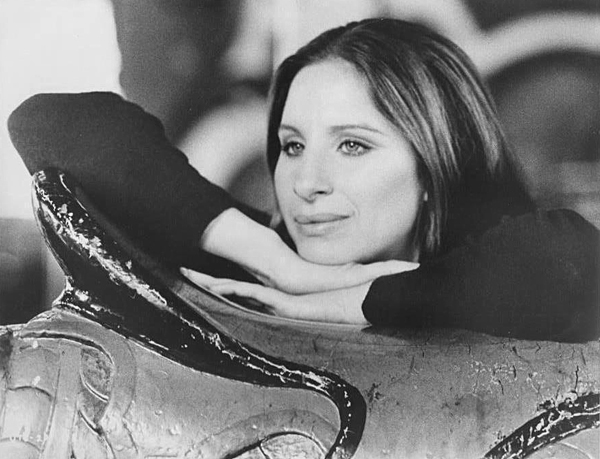
January 31, 1973
By DICK KLEINER

There's a new Barbra Streisand at large. This one is mellowed. Gone (forever?) is the one who stormed into Hollywood, breathing fire and scattering brimstone, making enemies and irking people.
No more. This is a sedate edition of Streisand we have with us now, a nonaggressive Streisand. She recognizes the change in herself and she's not quite sure if she understands it or not. But she likes it.
IT ALL happened, probably, when she became a producer, with her first film being “Up the Sandbox." She was on the other side of the fence for the first time and she realized what it was like to deal with actors and actresses.
“As a producer,” she says, “I had to be above all the on-set situations. If I was late, it wasn't because I was a prima donna, but because I was late. Sometimes the actress in me fought the producer in me. I was a lax producer and I let the actress in me win out.”
But she woke up to a few facts about herself. The waking up made it tough for her in her next picture, “The Way We Were,” which just employed her talents as an actress.
“‘THE WAY We Were’ was written for me,” she says. “I play a determined, aggressive, politically involved woman. I found a lot of that difficult to play. The director kept asking for more aggression—but I'm not that way any more.
“I've mellowed. It made it harder for me to play that part but it was more challenging.”
The whole woman is changing before our very eyes. Gone is the nightclub singer. Gone is the wise-cracking Brooklyn dame. Gone is the work-work- work push-push-push lady.
“I GET a lot of scripts,” she says, “which feature that brash, Brooklyn, smart-alecky girl. I don't find that character appealing any more. I don't want to repeat myself.”
“I don't go around saying funny lines,” she says. “I‘m kind of dull. My concerns are my child, the world we live in and my own reality.”
The whole thing boils down to this: Barbra Streisand is older and more mature and has reached that plateau that all of us (even super-stars) reach—the plateau called insecurity.
“AS YOU get older,” she explains it, “you get less confident. I feel kind of old hat these days. I guess I'm Establishment now.”
She enjoys a quiet pleasure in the fact that music lovers think of her as part of the Establishment, while the "young" high priestess of the contemporary music scene, Carole King, is actually a year older than she is.
She also has just learned a truth which all big stars must learn, the truth about the fickleness of the public. Today's new sensation quickly becomes tomorrow's too familiar face.
“WE'RE SO avaricious for new performers,” she says. “We seem to have a need for idols—and a need to destroy them after we create them.”
Perhaps that's why she turned to producing with "Up the Sandbox."
“lt was terribly interesting.” she says, “being responsible for failure or success.” For Barbra, the picture was a risk.
“I TOOK the risk of not being liked by the audience,” she says. “It's not a charming part. There are very few funny lines.”
Looking ahead she finds the future cloudy. She doesn't want to direct—“I'd just like the directors to listen to me when I tell them what I want”—and she doesn't want to sing in clubs and she doesn't want to play that Brooklyn girl any more.
“I don't know what I want to do,” she says. “My dreams have to do with reality. There is one part I want to play though, to be done in Yugoslavia and it would take seven months to film, and I don't think I'm that devoted.
“IT'S A story called ‘Yentl, the Yeshiva Boy.’ It's a true Women's Lib story of a girl who masquerades as a boy.”
For the moment, though, she's going to stay home, start an organic garden and grow her own fruits and vegetables. Then she wants to get into casserole cooking—“less butter, less meat.”
Less butter, less meat—and considerably more maturity.
End.
Related Page: Up the Sandbox film page
[ top of page ]
